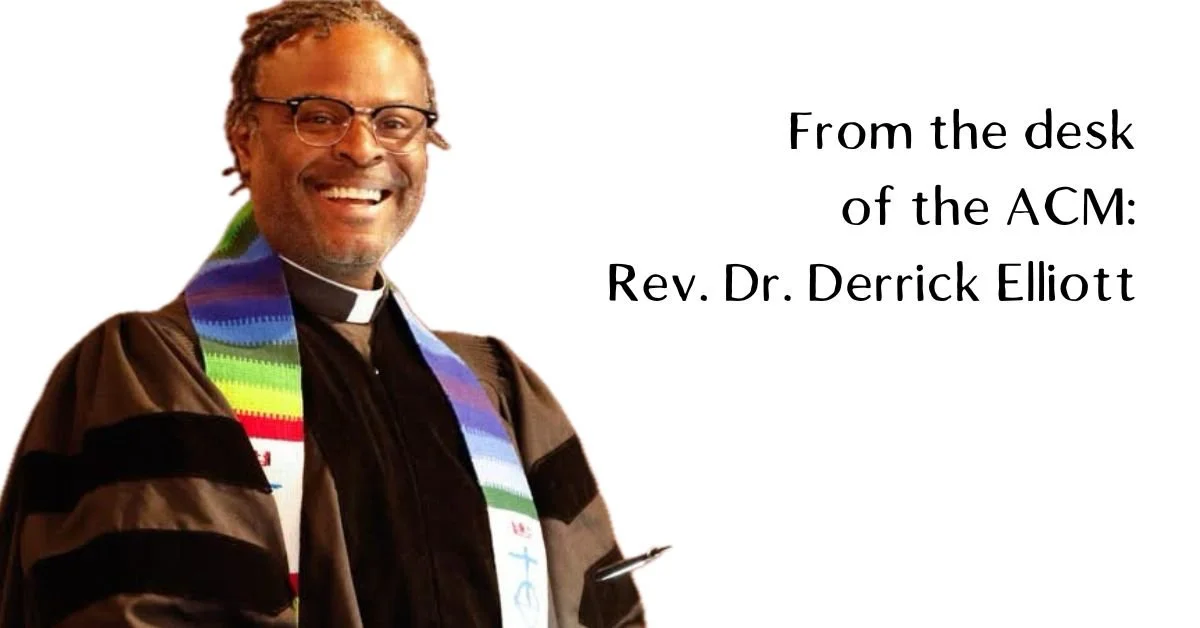What’s in a name?” Shakespeare once asked. A rose by any other name would still smell as sweet. The same is true for many of us. Over the years, I’ve held many titles: son, husband, friend, teacher, chaplain, pastor, and now associate conference minister. Each one carries its own weight, but some titles go deeper than description. They take responsibility, even identity. Thomas C. Oden never took the title of pastor lightly. In his book Pastoral Theology: Essentials of Ministry, he reminds us that “pastor” comes from the Latin for shepherd. That’s not just a quaint metaphor. It’s one of the deepest biblical images for Christian ministry (Psalm 23, John 10, 1 Peter 5).
Shepherds don’t get corner offices, they don’t spend their days shuffling memos, and they certainly don’t wear Italian suits to go herd sheep. They walk with the flock, make sure no one wanders off a cliff, fend off predators, and sometimes even smell like the sheep they’re caring for. Oden believed that the image best describes what the clergy are called to be.
A pastor, he says, isn’t primarily a manager, a therapist, or an entertainer. The role is far older and far weightier. To be called pastor is to be entrusted with the care of souls: preaching, baptizing, feeding the people with Word and Sacrament, praying, and modeling what faith looks like in real life.
Oden also makes it clear that a pastor is not an honorary badge you wear to get clergy discounts at the bookstore. It is a functional and theological office. It names responsibility before God and the church. To reclaim the title is to reclaim the heart of ministry itself.
Of course, pastors are known by many titles—“Reverend,” “Minister,” “Chaplain,” “Preacher,” sometimes even just “Hey, Pastor.” Titles may vary by tradition or by personality (and occasionally by whoever’s trying to get our attention in the church parking lot). But Oden would say that no matter what people call us, the essence of the calling is the same: shepherding God’s people with faithfulness.
For Oden, this also meant resisting the trend to see clergy as CEOs, motivational speakers, or social influencers. His point was simple: when pastors forget they are shepherds, the church forgets what it means to be the flock.
And perhaps that’s the gentle but needed reminder for us in the Southwest Conference. Our pastors may not carry staffs or spend their days outdoors, but they are still called to guide, protect, feed, and seek out those who are lost. And yes, sometimes it means ending a council meeting with prayer instead of another round of budget spreadsheets.
Since October is Clergy Appreciation Month, it’s a fitting time to pause and remember what the title pastor really means. It’s not about prestige or perks. It’s about shepherding with faithfulness, serving with humility, and—whether we’re called Pastor, Reverend, or simply Friend—living out the call to care for God’s people.
So, the next time you hear the word pastor—or any of its many variations—remember Oden’s wisdom. It’s not a title of honorific fluff. It’s a job description—and one that smells a lot more like sheep than like success.

